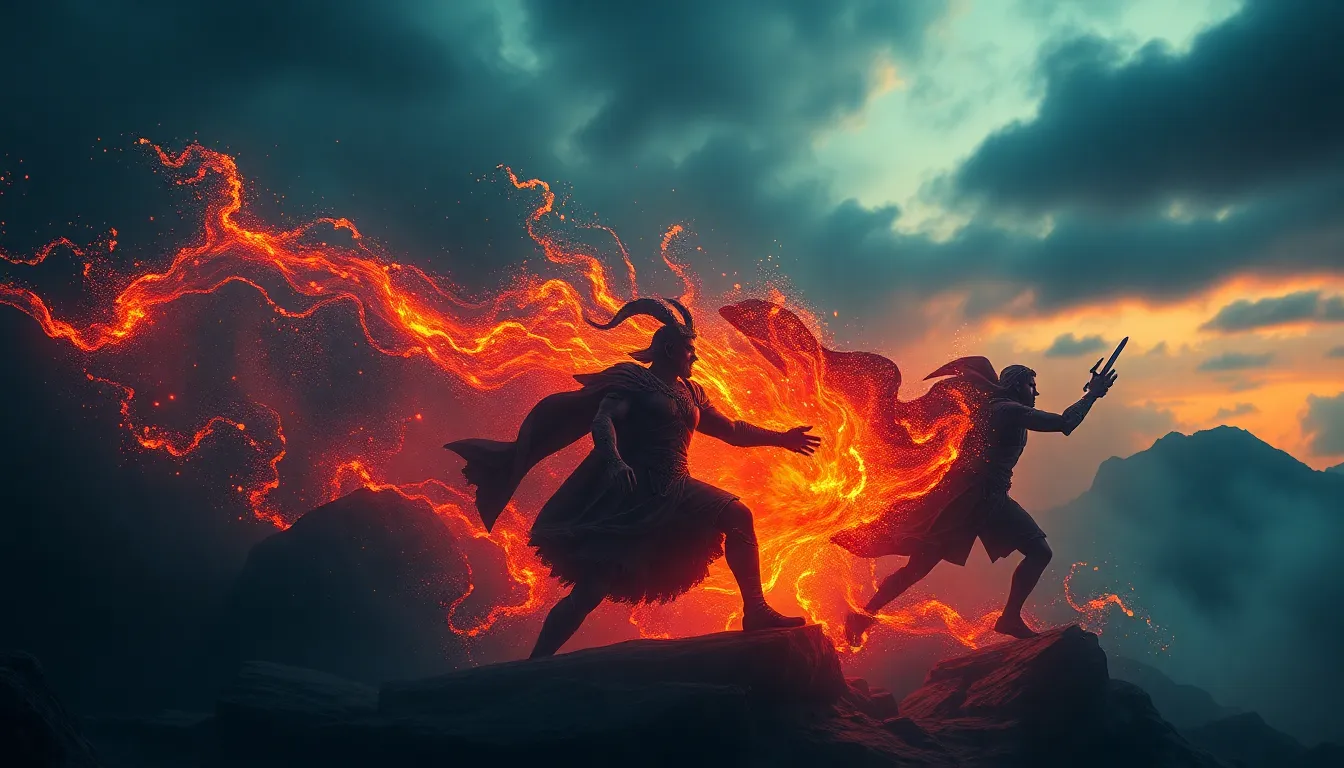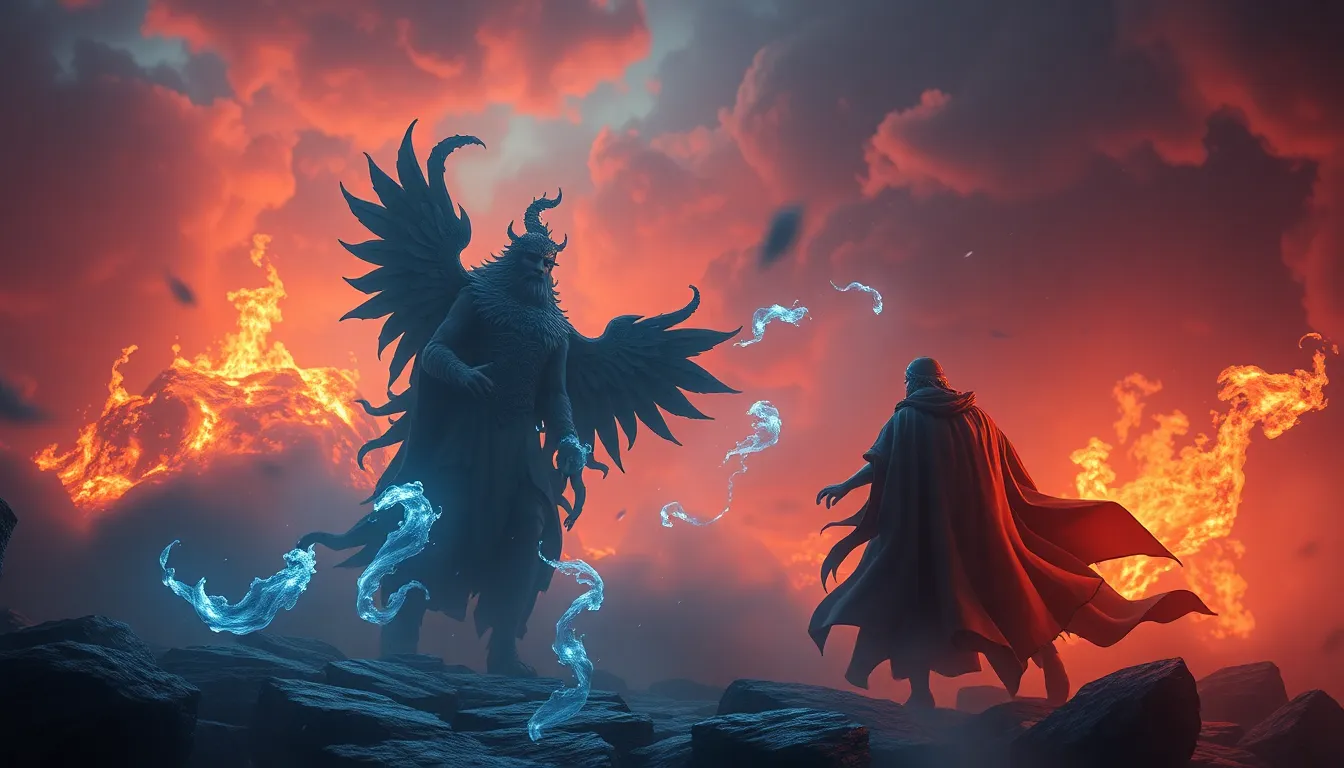The Transformative Power of Cultural Hero Myths in History
1. Introduction: Understanding Cultural Hero Myths
Cultural hero myths are narratives that revolve around central figures who embody the values, struggles, and aspirations of a society. These stories often feature heroes who embark on epic quests, face formidable challenges, and ultimately achieve great accomplishments, serving as moral exemplars for their communities. Myths play a crucial role in shaping societies and cultures, providing frameworks through which people can interpret their experiences, understand their identities, and cultivate a sense of belonging.
2. The Historical Context of Hero Myths
Hero myths can be traced back to various ancient civilizations, each contributing unique narratives that reflect their cultural values and historical circumstances. For example:
- Greek Civilization: Myths such as that of Hercules exemplify the hero’s journey, showcasing themes of strength, perseverance, and redemption.
- Roman Civilization: Figures like Aeneas symbolize duty and piety, reflecting the Roman emphasis on virtue and statehood.
- Indigenous Cultures: Stories of trickster figures, like Coyote in Native American folklore, illustrate moral lessons and community values.
These myths served significant purposes in their respective societies, providing not only entertainment but also moral and ethical guidance, community cohesion, and cultural identity.
3. Characteristics of Cultural Hero Myths
Cultural hero myths share common traits that resonate across various cultures and epochs:
- The Hero’s Journey: Often follows a structured path that includes stages such as the call to adventure, trials, and eventual return.
- Archetypes: Many hero myths contain archetypal characters such as the mentor, the threshold guardian, and the shadow, which serve to universalize the narrative.
- Symbolism: Hero narratives are rich in symbols that convey deeper meanings about humanity, morality, and the human condition.
4. Cultural Hero Myths as Tools for Social Cohesion
Myths play a vital role in fostering community identity and shared values. They serve as a unifying force, connecting individuals through common narratives and collective memories. For instance:
- King Arthur in Britain: The legends of King Arthur and the Knights of the Round Table embody ideals of chivalry, loyalty, and justice, contributing to a shared national identity.
- The Sun God in Mesoamerica: Myths surrounding deities like Quetzalcoatl reinforced agricultural practices and societal organization, fostering a sense of unity among diverse tribes.
These examples illustrate how hero myths can unify cultures by promoting collective values and communal aspirations.
5. The Role of Hero Myths in Moral and Ethical Frameworks
Hero myths are powerful vehicles for communicating moral lessons and societal expectations. They often depict the struggles between good and evil, right and wrong, ultimately guiding individuals towards virtuous behavior. Notable examples include:
- Prometheus: The Titan who defied the gods to bring fire to humanity teaches lessons about sacrifice and the pursuit of knowledge.
- The Buddha: The life of Siddhartha Gautama illustrates the principles of compassion, enlightenment, and the importance of overcoming suffering.
Such myths have shaped ethical norms and influenced behavior across generations, embedding moral values within the cultural fabric.
6. Cultural Hero Myths in Political Discourse
Throughout history, hero myths have been utilized to legitimize power and authority. Leaders have invoked these narratives to strengthen their positions and rally support from the populace. Historical examples include:
- George Washington: Often portrayed as a heroic figure in American mythology, his image has been used to symbolize democracy and national integrity.
- Nelson Mandela: His story of resilience and sacrifice in the fight against apartheid has become a powerful symbol of justice and reconciliation.
These instances highlight how the invocation of hero myths can be strategically employed in political discourse to inspire and mobilize citizens.
7. The Evolution of Hero Myths in Modern Contexts
As societies evolve, so too do their hero myths. Traditional narratives are often adapted in contemporary society, finding new expressions in pop culture and literature. Examples of this evolution include:
- Superheroes: Characters like Superman and Wonder Woman embody modern ideals of justice, heroism, and moral responsibility.
- Literature: Adaptations of classic hero myths in novels and films reflect contemporary issues, resonating with current audiences.
The impact of media on the perception and relevance of hero myths today cannot be understated, as these stories continue to shape cultural narratives and identity.
8. Critiques and Challenges of Hero Myths
While hero myths can inspire and unify, they also present potential dangers. Critiques of hero myths include:
- Glorification: The elevation of certain heroes can lead to unrealistic expectations and the neglect of their flaws.
- Exclusion: Traditional hero narratives often overlook diverse perspectives, marginalizing voices from different backgrounds.
Modern discourse increasingly seeks to deconstruct traditional hero narratives, challenging their universality and advocating for a broader representation of heroism.
9. The Future of Cultural Hero Myths
Looking ahead, cultural hero myths are likely to evolve in response to global challenges such as climate change and social justice. Predictions for the future include:
- New Heroes: Emerging figures from diverse backgrounds may redefine what it means to be a hero in contemporary society.
- Global Narratives: The interconnectedness of our world may lead to the blending of hero myths across cultures, fostering a shared global identity.
These shifts may reshape the landscape of heroism, emphasizing inclusivity and shared human experiences.
10. Conclusion: The Enduring Influence of Cultural Hero Myths
In summary, cultural hero myths possess a transformative power that has shaped societies throughout history. They serve as mirrors reflecting our values, aspirations, and ethical frameworks. The enduring influence of these myths on culture, identity, and societal progress underscores their importance in understanding the human experience. As we continue to navigate the complexities of contemporary life, the stories we tell about our heroes will play a crucial role in guiding us toward a more inclusive and understanding future.


